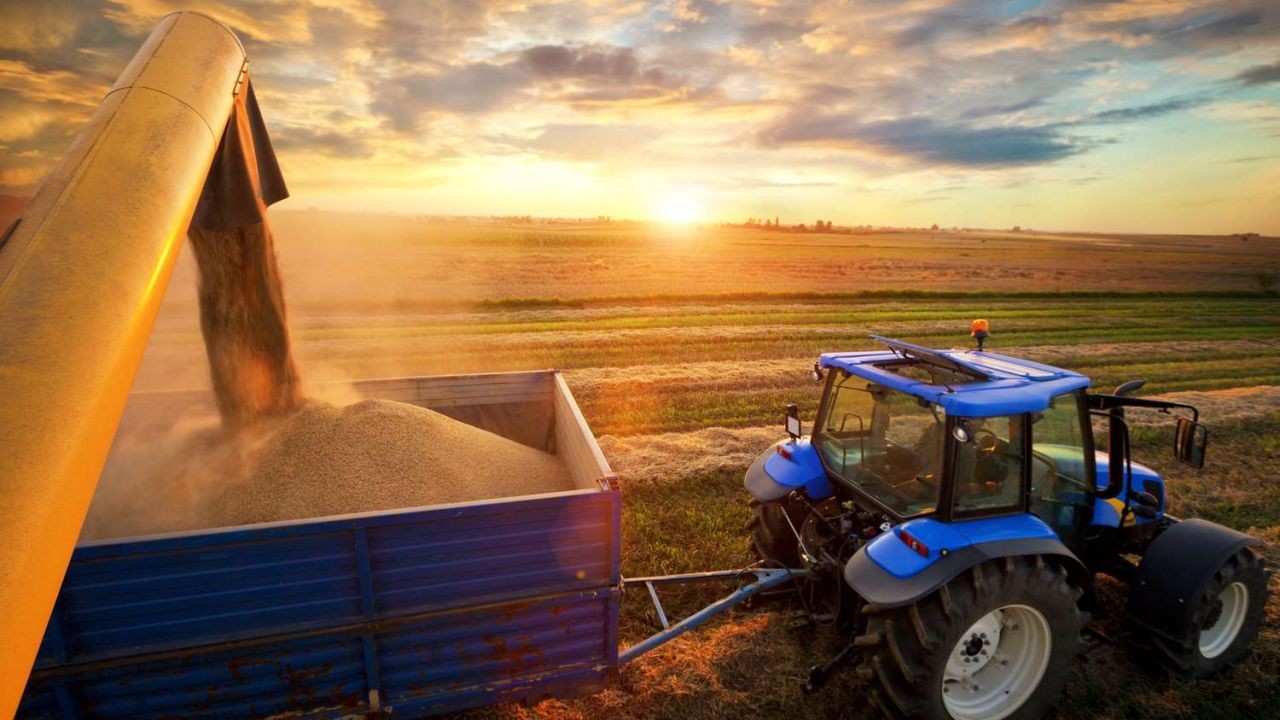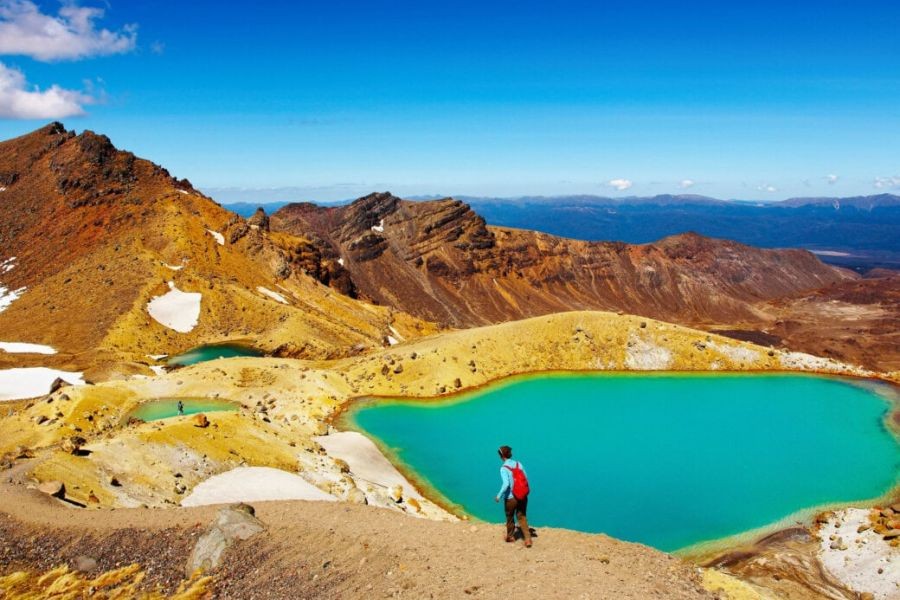Introduction
Imagine a world where New Zealand's pristine landscapes no longer symbolize its "Clean and Green" reputation. This scenario might seem far-fetched, yet evolving global food trends are challenging the status quo. As consumer preferences shift towards sustainable and ethical consumption, New Zealand's food industry faces a critical juncture. With the country's reliance on agricultural exports, understanding how these trends might alter its economic landscape is crucial. A 2022 report from Stats NZ highlights that agriculture contributes nearly 7% to the national GDP, underscoring its economic significance. Therefore, the impact of changing food trends on New Zealand's reputation and economy cannot be overstated.
What does this mean for New Zealand's future? Let's explore this dynamic interplay of reputation, industry, and sustainability.
The Evolution of Global Food Trends
To comprehend how New Zealand's reputation might shift, we must first examine the global food trends reshaping consumption patterns. From plant-based diets to lab-grown meats, the food industry is undergoing a transformation driven by environmental concerns and health consciousness. According to a 2023 report by Deloitte, plant-based food sales worldwide are projected to grow by 12% annually over the next decade.
New Zealand, renowned for its dairy and meat products, faces a dichotomy. On one hand, the global demand for sustainable products offers opportunities for innovation and market expansion. On the other, it challenges traditional agricultural practices integral to the country's economy.
Case Study: Fonterra's Sustainable Transformation
One of New Zealand's leading dairy cooperatives, Fonterra, exemplifies the industry's adaptation to changing trends. Facing increasing pressure to reduce its carbon footprint, Fonterra adopted a comprehensive sustainability strategy. By investing in renewable energy and efficient water usage, the company aims to achieve net-zero emissions by 2050.
Problem: Fonterra's reliance on traditional dairy farming methods was at odds with the growing demand for environmentally friendly products.
Action: The cooperative implemented sustainable farming practices, reducing emissions and conserving natural resources. It also diversified its product line to include plant-based options.
Result: Within a year, Fonterra reported a 20% reduction in emissions and a 15% increase in global market share for its sustainable products.
Takeaway: This case underscores the importance of innovation and adaptability in maintaining New Zealand's "Clean and Green" image. Other Kiwi businesses can emulate Fonterra's approach to meet global sustainability standards.
Data-Driven Insights: The Economic Impact
A closer examination of New Zealand's economic indicators reveals the potential ramifications of changing food trends. The Ministry of Business, Innovation, and Employment (MBIE) predicts that by 2030, plant-based foods could contribute $1 billion to the economy, a significant increase from the current $200 million. This shift presents both challenges and opportunities for the agricultural sector.
However, transitioning to sustainable practices requires substantial investment. A 2023 report from the Reserve Bank of New Zealand highlights the need for $2 billion in funding to support agricultural innovation and infrastructure development over the next decade.
Pros vs. Cons of Embracing Sustainable Food Trends
Pros:
- Market Expansion: Diversifying product offerings can tap into the growing demand for sustainable and ethical foods, enhancing global competitiveness.
- Environmental Benefits: Sustainable farming practices contribute to reducing the carbon footprint and preserving natural resources.
- Consumer Appeal: Aligning with consumer preferences for ethical consumption can foster brand loyalty and market differentiation.
- Economic Growth: As predicted by MBIE, plant-based foods could significantly boost New Zealand's economy by 2030.
Cons:
- High Initial Costs: Transitioning to sustainable practices may require significant upfront investment, posing financial challenges for smaller businesses.
- Industry Resistance: Traditional agricultural sectors may resist change due to perceived threats to established practices.
- Regulatory Challenges: Adapting to new regulations and standards can be complex and time-consuming.
- Supply Chain Disruptions: Shifts in production methods could lead to temporary supply chain disruptions.
Balancing Perspectives: The Great Debate
Advocates argue that embracing sustainable food trends positions New Zealand as a global leader in ethical consumption. A study by the University of Auckland suggests that sustainable practices can increase consumer trust and brand loyalty, driving long-term profitability.
However, critics highlight the financial burden of transitioning to sustainable practices, particularly for small and medium-sized enterprises (SMEs). According to a 2023 survey by NZ Business Magazine, 60% of SMEs cited cost as a major barrier to adopting sustainable practices.
Finding a middle ground involves government support and incentives for businesses to invest in sustainability. By providing financial assistance and resources, New Zealand can facilitate a smoother transition for businesses of all sizes.
Common Myths & Mistakes
As New Zealand navigates changing food trends, it's crucial to debunk myths that hinder progress:
- Myth: "Sustainability is too expensive for small businesses." Reality: While initial costs can be high, long-term savings from efficient resource usage often outweigh the expenses (Source: MBIE, 2023).
- Myth: "Consumers don't prioritize sustainability." Reality: A 2023 survey by Consumer NZ found that 70% of Kiwis consider sustainability when making purchasing decisions.
- Myth: "Traditional agriculture can't adapt to new trends." Reality: Initiatives like regenerative farming have proven successful in modernizing traditional practices while maintaining productivity (Source: NZ Agricultural Review, 2024).
Biggest Mistakes & Pitfalls to Avoid
- Neglecting Consumer Preferences: Businesses that fail to align with consumer demand for sustainable products risk losing market share. Solution: Conduct regular market research to understand evolving consumer preferences (Source: NZ Business Insights, 2024).
- Resistance to Change: Clinging to traditional methods can hinder progress and innovation. Solution: Embrace change by investing in research and development to explore new opportunities.
- Overlooking Regulatory Compliance: Failing to adhere to sustainability regulations can lead to legal complications. Solution: Stay informed about changing regulations and seek guidance from industry experts (Source: MBIE, 2023).
Future Trends & Predictions
The future of New Zealand's "Clean and Green" reputation hinges on its ability to adapt to changing food trends. By 2030, experts predict that sustainable products will dominate global markets, with New Zealand poised to become a leader in ethical consumption. According to a report by NZTech, the integration of technology in agriculture will play a pivotal role in achieving this goal.
Furthermore, the government is expected to introduce incentives for businesses adopting sustainable practices, fostering innovation and economic growth. As New Zealand embraces these trends, the country's reputation as a global leader in sustainability will be solidified.
Conclusion
New Zealand's "Clean and Green" reputation stands at a crossroads. With changing food trends reshaping global consumption patterns, the country's agricultural sector must evolve to meet new demands. By embracing sustainable practices, New Zealand can not only preserve its reputation but also enhance its economic prospects.
To stay ahead, businesses must invest in innovation, align with consumer preferences, and adhere to evolving regulations. The journey towards sustainability is challenging but rewarding, offering opportunities for growth and global leadership.
What steps will you take to adapt to these changing trends? Share your thoughts and insights in the comments below!
People Also Ask (FAQ)
- How do changing food trends impact New Zealand's economy? Changing food trends can boost New Zealand's economy by creating opportunities for sustainable product innovation and market expansion, contributing to economic growth.
- What are the biggest misconceptions about sustainable agriculture in New Zealand? One common myth is that sustainability is too costly for small businesses. However, long-term savings often outweigh initial expenses.
- What strategies can help New Zealand businesses embrace sustainable food trends? Conducting market research, investing in R&D, and staying informed about regulations are key strategies for success.
- What role does technology play in New Zealand's agricultural transformation? Technology integration enhances efficiency and sustainability, helping New Zealand achieve its ethical consumption goals.
- Who benefits the most from sustainable food trends in New Zealand? Sustainable food trends benefit consumers seeking ethical products, businesses aligning with trends, and the environment through reduced carbon footprints.
Related Search Queries
- New Zealand sustainable agriculture
- Changing food trends in NZ
- Impact of plant-based foods on NZ economy
- Sustainable farming practices in New Zealand
- Fonterra sustainability initiatives
- Future of agriculture in New Zealand
- Economic impact of global food trends
- NZ government incentives for sustainable businesses
- Environmental benefits of sustainable farming
- Consumer preferences for ethical products in NZ






































permanentcosmeticsworld
12 days ago